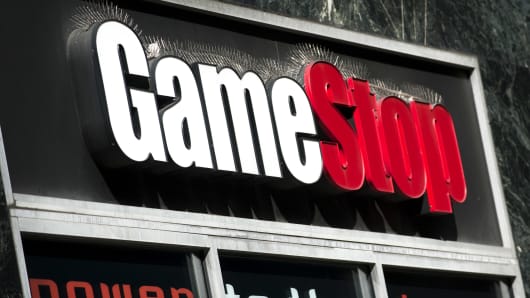When a 2009 holiday price war erupted between two of the largest online retailers, GameStop found itself caught in the middle.
Amazon and Wal-Mart kicked off last December by slashing prices on 25 of the year’s most popular video games—with the average discount ranging from 15 percent to 20 percent. That caught GameStop by surprise—and ultimately contributed to the company reporting flat earnings for the nine-week period.
As retailers begin to gear up for holiday 2010, the two retail giants seem to be preparing for another battle, which could put pressure on GameStop sharesin the fourth quarter.
"I think it’s an ongoing overhang for GameStop," says Colin Sebastian of Lazard Capital Markets. "Wal-Mart’s aggressive pricing moves took investors by surprise last year. They’re anticipating it this year, but the question is: How does GameStop respond?"
Investors are hoping the company reacts more proactively than it did in 2009. As the bigger companies duked it out, GameStop was hesitant to step into the fight—and, as a result, shares dropped 15 percent in 10 days.
This year, it seems a bit better prepared. As big retailers have tested lower prices on titles throughout the year, GameStop has matched the moves.
That might sound like a natural reaction, but it hasn’t been the company’s style historically. Because the GameStop audience is largely geared to the core gamer, who trades in older games for new ones, it hasn’t had to be as sensitive to price fluctuations at other retailers.
That, say analysts, has been one of the company’s biggest strengths.
"Retailers often race to the bottom as fast as they can," says Sebastian. "GameStop has always tried to be disciplined about this and resisted the temptation. I think they’ll be more price competitive this holiday, though. I think they’re also looking for ways to leverage whatever advantage they have with the core gamers."
Working against the company is the fact that during the holidays, core players don’t generally make up the majority of the game buying public. Gift givers do.
And those consumers are very price-sensitive, particularly in this economy.
2010 has not been great for the video game industry in general, so far. Year to date, sales are 8 percent behind last year’s disappointing results and many analysts believe this will be the second consecutive year that sales decline, something that hasn’t happened in the industry’s history.
While GameStop focuses exclusively on the video game industry, it has managed to avoid mirroring those sales trends. In its second fiscal quarter earnings last month, it reported a 5 percent increase in new software sales, despite a 7 percent industry-wide drop – suggesting it continues to take market share away from other retailers.
It’s also cash rich. On Wednesday, it announced plans for a $500 million stock repurchase program—a move that surprised and delighted analysts.
"[The] announcement is a step in the right direction and should please investors/observers on the sidelines," said Arvind Bhatia of Sterne Agee. "We had expected an announcement like this early next year, so [this] announcement comes sooner than anticipated."
Also working in GameStop’s advantage is the successful launch of "Halo: Reach." Microsoft says total U.S. sales of the game hit $200 million in the first 24 hours of availability.
That indicates there’s an audience out there for core holiday titles. And when it comes to those sorts of games, GameStop tends to shine.


